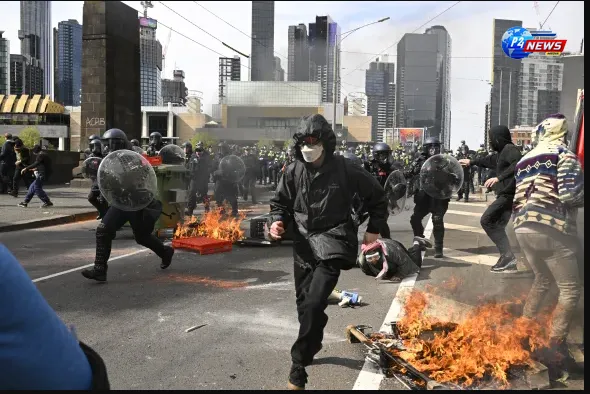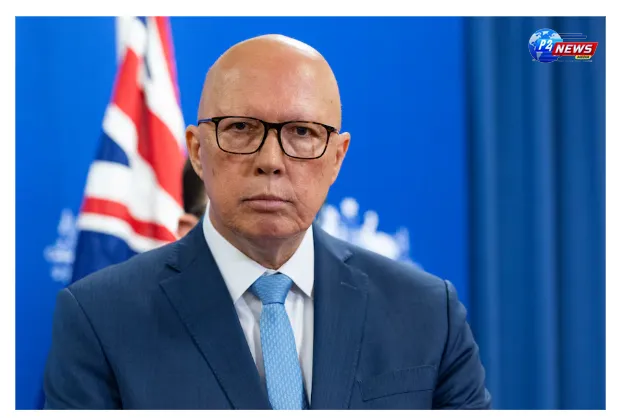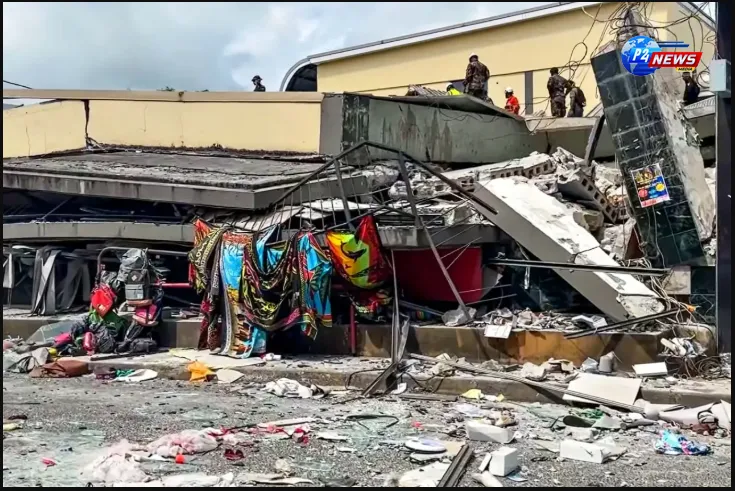Victoria's government plans to implement new laws to limit protests in response to recent anti-Semitic events. Prohibited items include face coverings, specific flags, and attachment devices, while designated protest-free zones will be created around places of worship.
The government of Victoria has announced a series of significant changes aimed at regulating the rights of protesters while fostering social cohesion. This initiative comes in response to a noted increase in anti-Semitic incidents throughout the region. Premier Jacinta Allan stated that her recent conversations with the Jewish community following the suspected act of terrorism at the Adass Israel Synagogue played a crucial role in shaping this new approach.
"The memory of the charred synagogue is something that will remain with me indefinitely," Ms. Allan reflected. She recounted the distressing accounts from individuals who narrowly escaped the attack. The Premier expressed her firm stance against minimizing anti-Semitism, stating emphatically, "I will not endorse any form of justification for it."
Presented on a Tuesday, the government's proposed changes would introduce new legislation designed to enhance protections for individuals attending places of worship. These legal adjustments might establish designated safe areas surrounding religious sites, effectively prohibiting protests in those zones.
Victoria Police will also receive expanded authority concerning protests, with Ms. Allan emphasizing that these modifications will protect the multicultural fabric of the state, which she believes is vital for maintaining social harmony. "A modern and diverse Victoria is founded on a straightforward principle: no matter your identity or beliefs, you are secure and embraced here," she declared.
The Premier also announced additional initiatives intended to improve social cohesion, which she noted has been in decline in recent months. One such proposal involves introducing a "social cohesion pledge" that multicultural organizations will need to adopt to qualify for government funding. This new legislation will need to pass through parliament and will be developed in consultation with leaders from various religious communities.
This proactive stance mirrors actions taken by the New South Wales government, which is also considering legislative changes following a protest outside Sydney's Great Synagogue on December 4. Furthermore, a new group called 'Local Escalation and Help' is proposed to enhance communication between government and Jewish community representatives.
A separate set of regulations was announced, aimed at equipping police with greater authority to manage public demonstrations. Under these developments, the government plans to prohibit protesters from using symbols associated with terrorist organizations, as well as face masks and balaclavas. While Ms. Allan acknowledged that not all masked individuals are linked to anti-Semitism, she highlighted that masks have been utilized by individuals with ill intent during protests.
"We recognize that face coverings can be exploited to hide identities and shield troublemakers from law enforcement," Ms. Allan asserted. "Wearing a mask should not be seen as a license to violate the law." Additionally, the use of glue, ropes, and other locking devices at protests would be banned, as such tools have previously been employed by demonstrators to obstruct public spaces.
While acknowledging the importance of the right to protest, Ms. Allan firmly stated that safeguarding the welfare of Victorians must take precedence. "We must protect peaceful protests, but those that endanger others cannot be tolerated," she stated.
Minister for Police Anthony Carbines reinforced these proposed regulations, emphasizing that they would grant Victoria Police the authority to require protesters to remove any face coverings at rallies. "Ski masks belong on the slopes and not on the streets of Melbourne," he commented. He noted that failure to comply with such requests could result in arrest and charges.
The Minister explained that the prohibition on "attachment devices" aims to enhance the safety of emergency responders, who face risks when dealing with protesters who utilize such tools. The new legislation would empower police to stop and search individuals or vehicles if they suspect possession of dangerous attachment devices.
Previously, under existing laws, authorities were required to return such items to individuals who used them. However, the proposed changes would allow law enforcement to seize and dispose of these devices to prevent disruption and safeguard the community. "Attachment devices pose significant risks to first responders during interventions and jeopardize public safety," Mr. Carbines noted, emphasizing the need for these legal adjustments.
















Comments 0